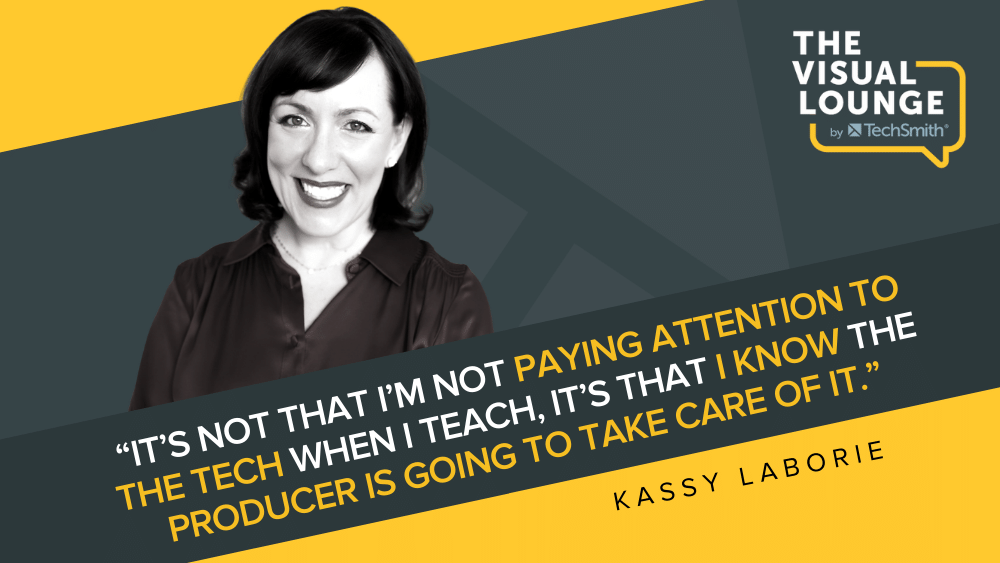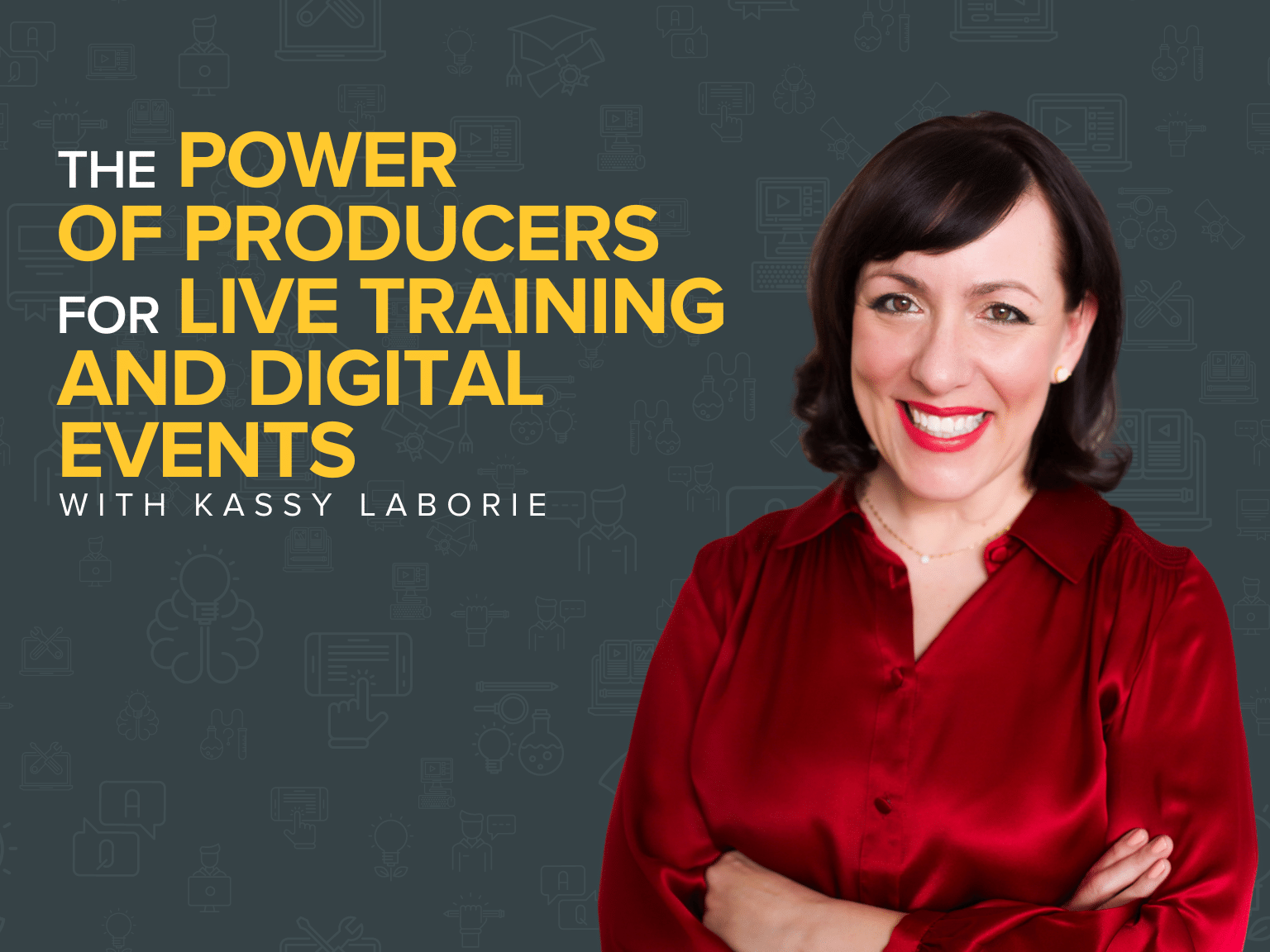With the world shifting more into virtual spaces, live events are becoming the order of the day. If you’re in the L&D community, it’s probably time to think about ways to manage your time, space, tech and everything in between.
To speak more on how to own your virtual training space, Kassy LaBorie, the Founder of Kassy LaBorie Consulting, LLC and virtual classroom master trainer, joins The Visual Lounge.
Kassy is the “Original Virtual Training Hero” and is in the business of helping people give their best in virtual training sessions. She covers everything from live virtual training events to webinars and also ways to connect better with your audience.
In this episode, Kassy reveals the various ways she connects with her audience, how her producers help her streamline her messages, and the ins and outs of becoming a virtual training hero.
You can watch the video on this topic at the top of this post, to listen to the podcast episode, hit play below, or read on for more…
The role of producers in live training events
It’s safe to say that the scope of work of a run-of-the-mill producer has expanded over the years. And with virtual training popularity at an all-time high, producers have carved quite the niche for themselves.
At a basic level, a producer manages the technological aspect of things. That way, trainers can concentrate on delivering their content. But in some cases, they take on the management of entire training sessions.
Essentially, their job is to stay on top of most of the background elements that a trainer needs to run a successful session. That means there’s a long list of potential tasks a producer could do in a live virtual training session.
But if you’re hiring a producer, it’s important to head in with a plan for the scope of their duties because the role of a producer can vary greatly.
Benefits of using a producer for live training and digital events

If you’re keen on working smart and not hard, then a producer could be an invaluable addition to your team. It’s important to remember that a producer isn’t just someone who handles the technical stuff. There are different types of producers, and you’ve got to figure out where you need the most help.
When managed well, the producer-presenter relationship is a seamless division of labor. It ensures that the presenter can focus on delivering great content without worrying about the nitty-gritty side of managing the event.
Can’t one person manage both roles?
It’s not impossible, but it’s difficult to devote equal amounts of focus on each end. You can either double down on maintaining a connection with the audience or manage technical/background issues. But doing both perfectly is tough.
It’s much easier to have someone feeding you vital questions from participants or handling technical issues. And the more you work together, the more your producer can anticipate your needs.
Kassy sums it all up, saying,
“What I love about working with a producer is that over time you build a relationship, and then you start to read each other’s minds.”
Qualities of a great producer
If you’re going to have a producer, you might as well go for someone who’s a near-perfect fit for the role. Kassy outlines these as desirable qualities every producer should have:
- An interest in tech
Hiring someone with a keen interest in tech is a great starting point. In fact, it’s the one quality you cannot overlook. Without technical know-how, it’s hard for producers to handle any tech issues that arise.
Plenty can go wrong in a split second, especially with live virtual training sessions. While no one can anticipate all possible issues, a good producer should be able to notice them as they occur.
- Keen management and organizational skills
Technology has made things easier for the modern-day producer. But it can’t replace that human factor that you really need when it comes to live virtual events. With everything happening instantaneously, good organizational skills can make all the difference in making the event run smoothly.
- Good communication skills
Successful live virtual training sessions take a lot of collaborative work. Even more, there has to be that synergy between the trainer and the producer. It’s not just about speaking out at the right times. Listening and learning to identify non-verbal cues come in handy as well.
For more information on making your live training and digital events a success, head over to TechSmith Academy.



Share